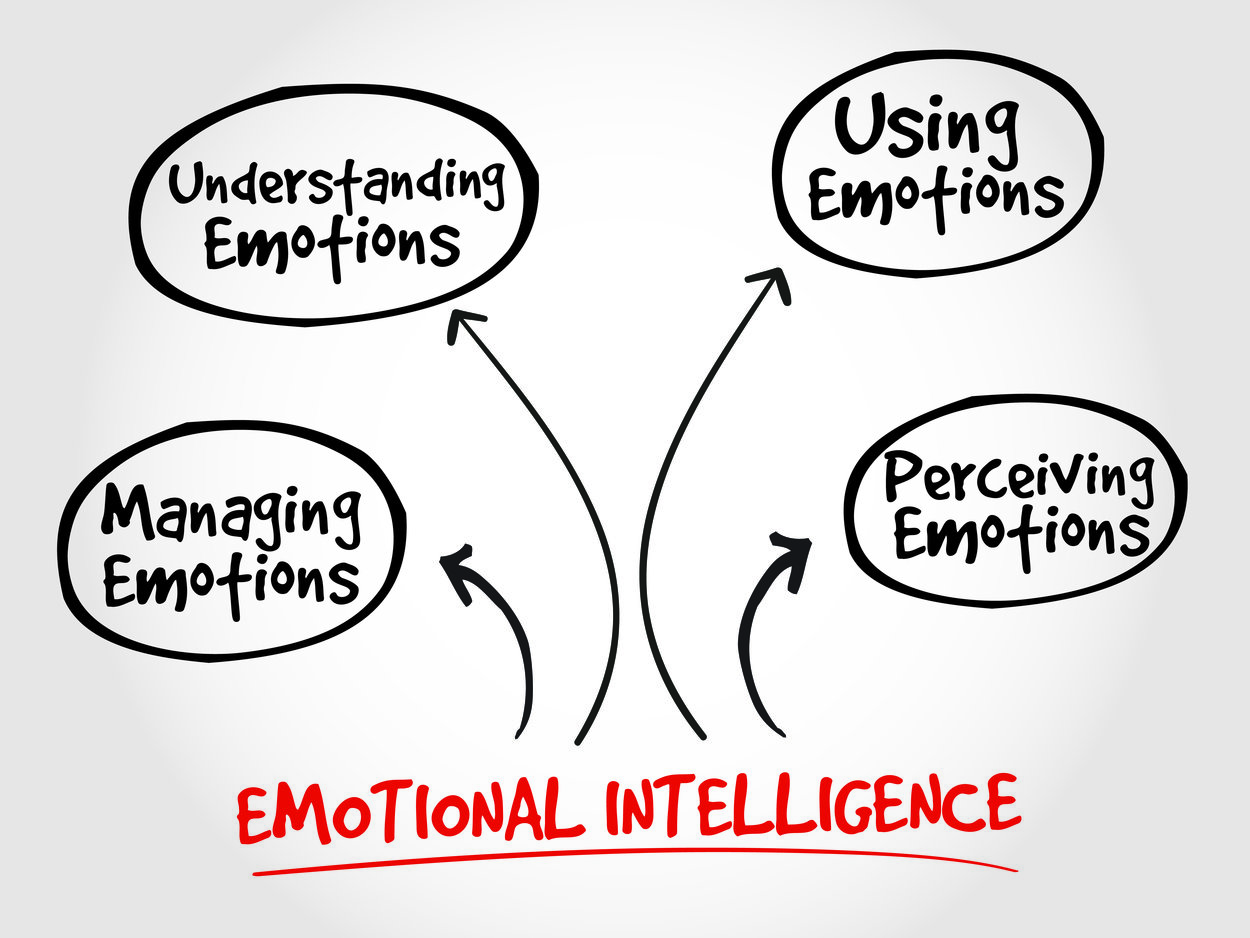Since their introduction over a century ago, IQ tests have provided a reasonably standard and generally agreed upon way of measuring intelligence across the world.
From the beginning though, they’ve been dogged by one question – how much of what they measure has any relevance to success in the wider world?
Successive studies have shown that high IQ scores bear little relation to overall life success. So, if it’s not IQ making the difference, where should we be looking for answers?
The introduction of the concept of Emotional Intelligence (EQ) was in large measure an attempt to solve this puzzle.
In this article we’ll look at the four key components Emotional Intelligence is made up of and how you can enhance your Emotional Intelligence.
Personal competence
This relates to your capacity for self-management and self-awareness – the focus being internal rather than external. Their combination determines how aware you are of your emotions and how well you can manage them.
Social competence
Here the focus moves to the outside world with the two primary components being your social awareness and relationship management skills. The first describes how well you can pick up on social cues and understand the emotions of those around you. The second relates to how well you can then use this knowledge to interact with others.
Even the briefest reflection on those qualities will doubtless bring to mind examples of people you know who are generally agreed to be “brilliant” but who simply cannot deal with people or themselves across any of those areas. Which brings us neatly on to our next point.
Emotional intelligence is distinct from personality and IQ
Emotional intelligence appears to be totally separate from IQ and it is impossible to make any assumptions on one based on knowledge of the other.
Moreover, while the capacity to learn that is measured by IQ seems to stay relatively stable over a lifetime, EQ is a much more flexible affair. It appears that EQ is more of a set of soft skills that can be learned rather than an innate quality.
And what about personality? That too seems to be separate from both IQ and EQ. Scientists consider the core components of personality – as measured on an introvert/extrovert scale such as Myers-Briggs – to be relatively fixed over a person’s life and, again, there is no direct link with either IQ or EQ.
So, what we are looking at are three separate sub-systems, each of massive importance, but only one of which can be really trained.
Emotional intelligence as a success driver
The plasticity of EQ is good news for everyone because a series of studies have shown that it – rather than personality or IQ – is the key driver in overall success.
Studies show that people who score highly on emotional intelligence make over $29,000 per year more on average than those who score poorly. That’s a significant chunk of change to be associated with just one area.
You’ll see this repeated across all areas of business and at all levels. A 2010 report found that 7 out of the 10 factors that set star managers apart were down to emotional intelligence rather than technical excellence.
Even in the dog-eat-dog world of professional sports, a 2008 survey found that emotional intelligence was a leading predictor of the future life success chances of retired NFL athletes.
The takeaway is this – emotional intelligence is the difference that makes the difference.
Emotional intelligence can be trained
We are hardwired to react emotionally before we act rationally. Quite literally.
External events are processed first by our limbic system which immediately generates an emotional response before our rational mind has a chance to tackle whatever the incoming data is.
A big part of the process of building emotional intelligence revolves around recognising this response and developing strategies to deal with it in a sensible way.
Let’s take a whirlwind tour through 5 practices to cultivate for boosting your EQ:
- Step outside the moment: Awareness begins by stepping aside in your mind to recognise that something is actually happening rather than simply blindly reacting to it.
- Be aware of your emotions: The next step is to calmly consider what emotion is the dominant one rather than letting it overwhelm you. You might, for example, be very angry. Acknowledge that. The presence of the emotion doesn’t mean you have to react angrily.
- Pay attention to non-verbal communication: Check your body and face regularly. What is the non-verbal message you are sending to the world?
- Use a light touch: Very few situations require DEFCON-1 levels of response. Tread lightly wherever you can.
- Positivity: Given the choice between a positive and a negative interpretation, always steer towards the positive while maintaining a sensible level of overall caution.
As you start to develop these five skills internally, you can branch out into using them more and more in your interactions with others. You’ll find surprisingly quickly that your overall Emotional Intelligence is beginning to blossom.
Neurons that fire together, wire together – stick at this process of improvement and you will be rebuilding the actual wiring of your system to maximise your future chances of success.



